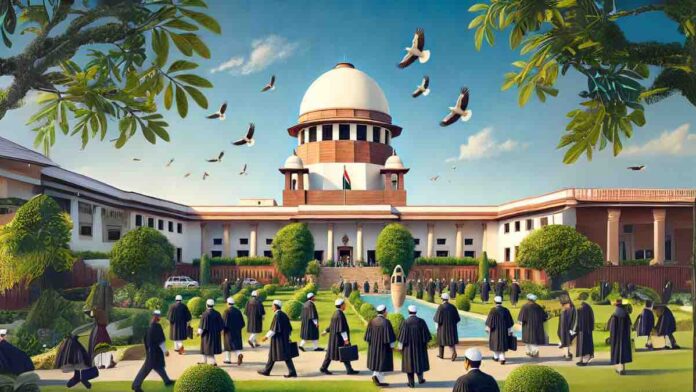In a landmark decision, the Supreme Court of India, led by Justice Abhay S. Oka and Justice Augustine George Masih, overturned a Karnataka High Court judgment, emphasizing the necessity of proper pleadings and evidence for compensation claims. The ruling entitles the appellant, Lakshmesh M., to full compensation for the land acquired for the Metro Rail
To Read More Please Subscribe to VIP Membership for Unlimited Access to All the Articles, Download Available Copies of Judgments/Order, Acess to Central/State Bare Acts, Advertisement Free Content, Access to More than 4000 Legal Drafts( Readymade Editable Formats of Suits, Petitions, Writs, Legal Notices, Divorce Petitions, 138 Notices, Bail Applications etc.) in Hindi and English.




